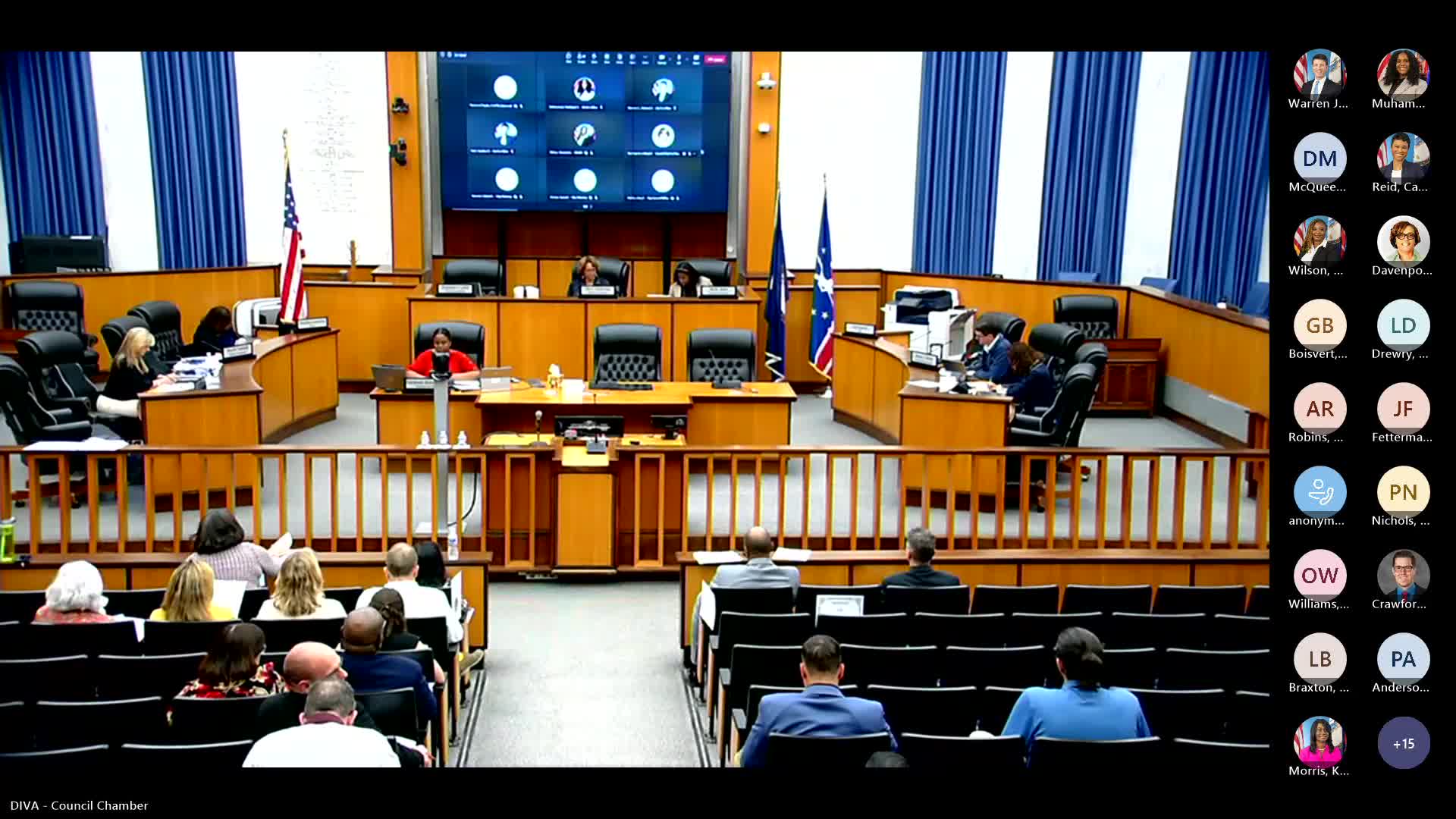Committee forwards proposed 2026 tax-rate ordinance and hears plan to realign assessment cycle
Get AI-powered insights, summaries, and transcripts
Subscribe
Summary
The Finance and Economic Development Standing Committee voted to forward ordinance 20250068, which would set a real estate tax rate of $1.16 for the tax year beginning Jan. 1, 2026, to the full City Council with no committee recommendation and heard a plan to realign the city's property assessment cycle to the fiscal year.
The Finance and Economic Development Standing Committee voted to forward ordinance 20250068, which would establish a real estate tax rate of $1.16 for the tax year beginning Jan. 1, 2026, to the full City Council with no committee recommendation. The committee also received a detailed presentation from the assessor's office and finance staff about realigning the property assessment cycle to the city fiscal year and about a communications plan for the change.
Why it matters: committee members said the proposal could affect homeowners and small-business owners across Richmond and requested fiscal and legal impact analyses before the Council takes final action. Councilmember Grama told colleagues that many residents are struggling and urged support for relief measures; the committee asked administration for an impact analysis and legal advice to be ready for the council meeting.
Realignment details presented: Sabrina Joy Hogg, senior deputy chief administrative officer for finance and administration, and Richard McKeithen, the city assessor, described a statutory and administrative plan to shift the land-book and assessment cycle from a calendar-year effective date to a fiscal-year schedule to better align assessments with the budget process.
Key technical points from the presentation: - The assessor will send assessment notices on Sept. 1 under the plan; the notices that go out next Sept. 1 are projected by staff to show an average taxable-value increase of about 6% citywide. - The administration said the same "land book" will be used for FY 2026 and FY 2027 during a matriculation period; that means limited incremental real estate revenue in the interim (primarily new construction and renovations). - The long-term plan moves reassessments to begin July 1 so the assessor completes a full cycle before budget adoption; staff said this should reduce the current practice of debating tax rates five months into a fiscal year. - Billing frequency to taxpayers will remain twice a year during the transition.
Communication and cost: finance staff said a targeted communications campaign is required for residents, mortgage and escrow companies, title firms, realtors and community organizations. The administration plans to contract a communications firm to tailor messages by audience and estimated the campaign cost at under $200,000; a scope of work will be issued in coming months and initial public outreach is scheduled to begin in September.
Council concerns and requests: several council members asked for regular updates during the assessment year so members and the public can track whether values are trending up or down. Councilmember Trammell and others raised concerns about displacement and the ability of lower- and moderate-income homeowners to pay increased taxes; staff responded that the reassessment could go up or down depending on market conditions but that aligning cycles gives the council more predictability. The committee asked the administration to prepare a fiscal impact analysis and a legal analysis; city counsel staff confirmed those analyses will be prepared for the April 28 council agenda.
Committee action: Chair Robertson moved to forward ordinance 20250068 to the full council with no recommendation to allow councilwide consideration with the requested analyses; the committee approved the motion on recorded "Aye" votes.
Next steps: the ordinance and the requested analyses will appear on the Council docket. The administration said it will provide incremental updates as the assessor's work proceeds and before the full reassessment becomes effective in 2028 under the new timetable.
